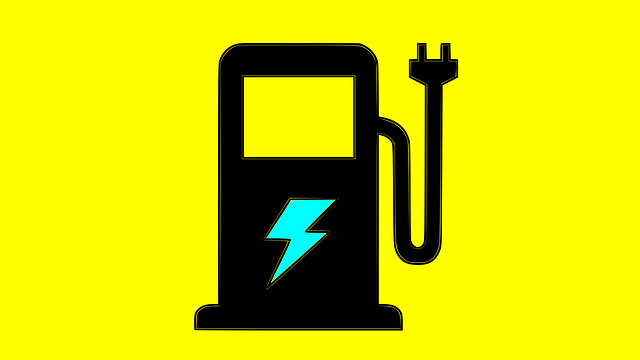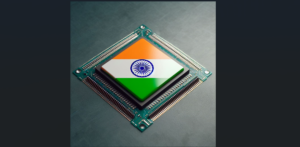As India proceeds towards a strong Electric Vehicle nation, Finance Minister Nirmala Sitharaman´s Union Budget for 2022 announced a battery swapping policy as an alternative to setting up charging stations in urban areas. To encourage EV adoption, a robust charging infrastructure is imperative, and the new policy is expected to support the ecosystem
HIGHLIGHTS
- Proposed battery-swapping policy
- Interoperability among wired EV charging stations
The Tech Panda gathered reactions of EV experts to find out what they think of the new EV policy.
Read more: Budget 2022 reaction: Ease of Doing Business 2.0
Bhaskar Deol, CEO and founder, eDRV
Following the policy, vehicle manufacturers, mobility service providers, and app developers would be able to work collectively and launch models with interoperable batteries across their products
“In addition to the proposed battery-swapping policy, the budget also addresses the interoperability among wired EV charging stations to increase EV adoption. Interoperability is also referred to as “EV roaming” and allows drivers to access a wider (if not universal) range of charging networks.
“eDRV has long been making the case for roaming in India, stressing how vital it is in establishing greater EV adoption in the country. The ability to use any EV network along a driver’s route has been argued to allow for greater discoverability, price transparency, convenience and more technological standardization.
“Following the policy, vehicle manufacturers, mobility service providers, and app developers would be able to work collectively and launch models with interoperable batteries across their products.
“Similarly, think tank CEEW-CEF — with whom eDRV are running a UKPACT-funded managed charging project in Delhi -– have stated that the announcement on battery swapping and interoperability in the budget could lead to higher user confidence.”
Vimal Singh, Founder & CEO, ReadyAssist
This could push the adoptability of EV to 10X
“Government’s thought leadership level act on the policies for bringing EV battery swapping interoperability is a brilliant move. This could push the adoptability of EV to 10X and also gives opportunities of collaboration between vehicle manufacturers and battery/service technology providers to enter in the space of BaaS (Battery as a Service).”
Mridu Mahendra Das, Co-founder & CEO, Automovill
The battery swapping policy will enable adoption of battery as a service
“The Budget just refueled the ongoing initiative with the announcement of battery swapping policy and charging stations setup plan. The battery swapping policy will enable adoption of battery as a service. This is also expected to reduce the running cost of the vehicle.
“With the increasing adoption of EV there is a need for simultaneous strengthening of the support infrastructure. Like new age auto tech service startups are upskilling and reskilling internally to support the maintenance end of it. As we have already launched India’s first learning management system for bridging the gap between skilled, semi-skilled workforce across the country in line with government vision.
“However, any sort of mismatch in manufacturing and post sales requirements like charging infrastructure absence would have taken away the steam of the ultimate aim of eMobility mission. Not just auto manufacturers, even auto service players will benefit from this budget.”
Shubhankar Chaudhry, CEO, One Moto India
There is hope that we will soon have a robust system to support the increasing adoption of EVs on road
“Almost all the auto giants in India have stepped into EV manufacturing further to the launch of e-mobility mission. In fact, a number of startups have also launched electric vehicles to leverage the shifting focus towards EVs over ICE.
“However, creating a balance between supply and adoption was the long stalling challenge for every player. Imagine, when the consumer is ready to buy an EV but gets hesitant due to the absence of charging infrastructure. This could not have been achieved without ample government support towards creating the right infrastructure and fueling the adoption at consumers’ end. State governments have been launching policies and subsidies to accelerate the adoption at their end.
“Now with the Budget announcement of battery swapping policy, and charging stations at a scale, there is hope that we will soon have a robust system to support the increasing adoption of EVs on road. As the budget rightly mentioned, Make in India shall create 6 million new jobs and all of us in the industry are dedicated towards accomplishing the same. We welcome this move by the central govt to achieve the “panchamrit” vision of the Honble Prime minister.”
Ankit Kumar, Tech Investor EV & Drone
Government announcement toward promoting a shift to use of public transport in urban areas will encourage investors towards investment in the EV sector
“Initially, there were doubts in the minds of investors about the intentions of the Government in terms of the EV industry, but the announcements made in the 2022 budget have definitely quelled doubts. The Government made it amply clear that EV manufacturing is the next big thing in its vision. This was very encouraging for the EV industry and shows how serious the government is in pushing for faster adoption of electric vehicles in the country.
“Government announcement toward promoting a shift to use of public transport in urban areas will encourage investors towards investment in the EV sector. This will be complemented by clean tech and governance solutions, special mobility those with zero fossil fuel policy, and EV Vehicles.
“The Finance minister also announced that the Government will come out with battery swapping technology to develop special zones for electric vehicles. Integration of private companies for the development will also boost investment in the sector.
“These announcements will promote the sales of electric vehicles in the country and formulation of interoperability standards will improve the efficiency of EV business.”












